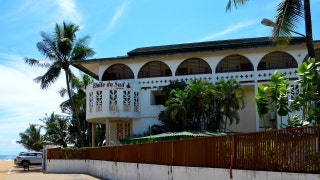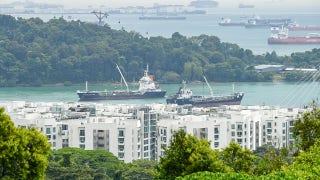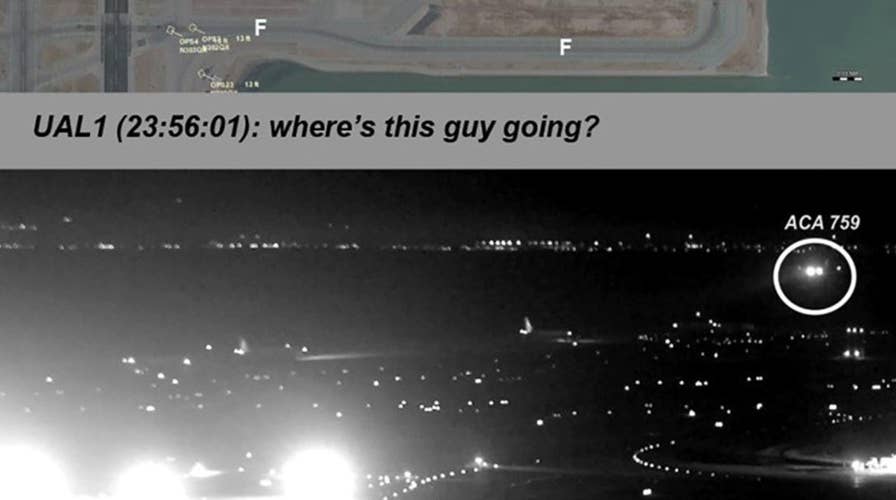Air Canada jet avoids multi-plane crash landing on taxiway
NTSB has released new information and images showing an Air Canada flight mistaking a busy taxiway at the San Francisco International Airport for the runway, coming within 59 feet from three airliners
Alarming photos released by the National Transportation Safety Board show how shockingly close an Air Canada plane came to triggering one of the worst disasters in aviation history.
The plane came within 59 feet — about the height of a passenger plane — before it pulled up to attempt another landing.
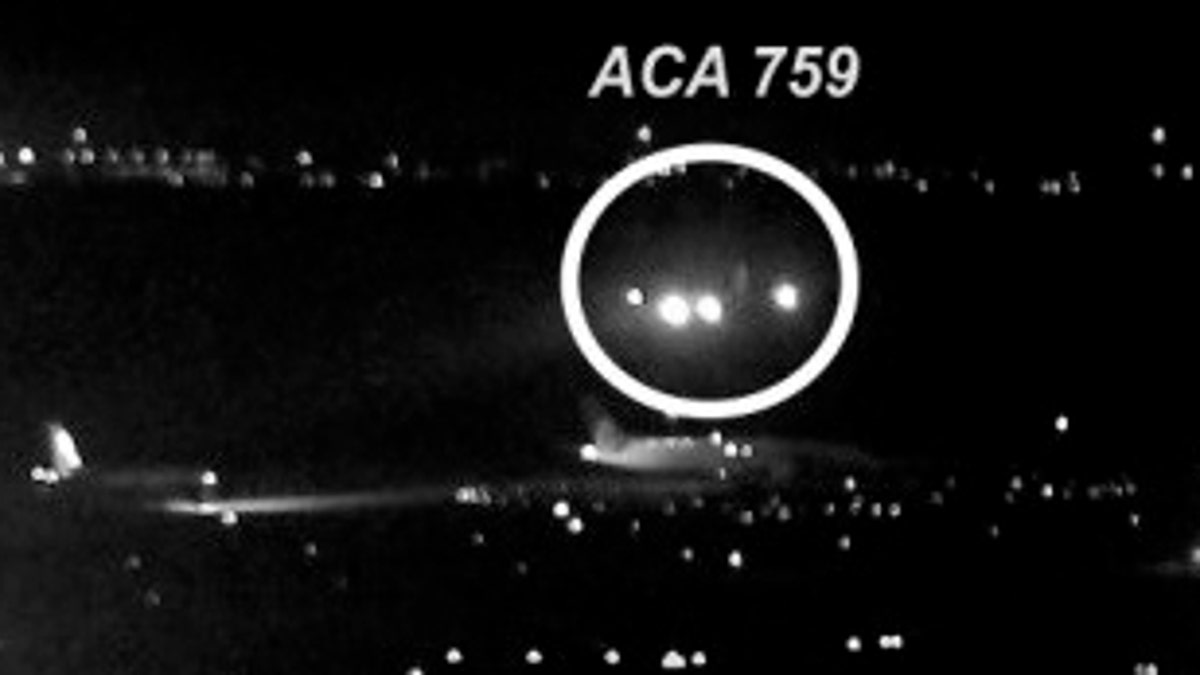
The image shows the Air Canada plane flying just above a United Airlines flight waiting on the taxiway. The jet came within 59 feet of the other planes. (NTSB via AP)
But the scariest new detail in the NTSB report is that investigators may have uncovered a blind spot in the airport’s radar system that delayed air traffic controllers from noticing last month’s near-miss.
For 12 seconds, the rogue jet dropped from radar when it approached the taxiway just before midnight.
AIR CANADA FLIGHT ALMOST LANDS ON TAXIWAY, NARROWLY AVOIDS ‘GREATEST AVIATION DISASTER IN HISTORY
The plane had been cleared to land, but it mistook the runway for the one next to it. So instead of heading toward the landing strip, the A320 jet ended up aiming for a taxiway where four passenger planes were waiting to take off.
That mistake went undetected by the airport’s radar system — which is supposed to prevent runway collisions — because it is not designed to spot planes lined up on a taxiway.
"It was close, much too close," said John Cox, a safety consultant and retired airline pilot.
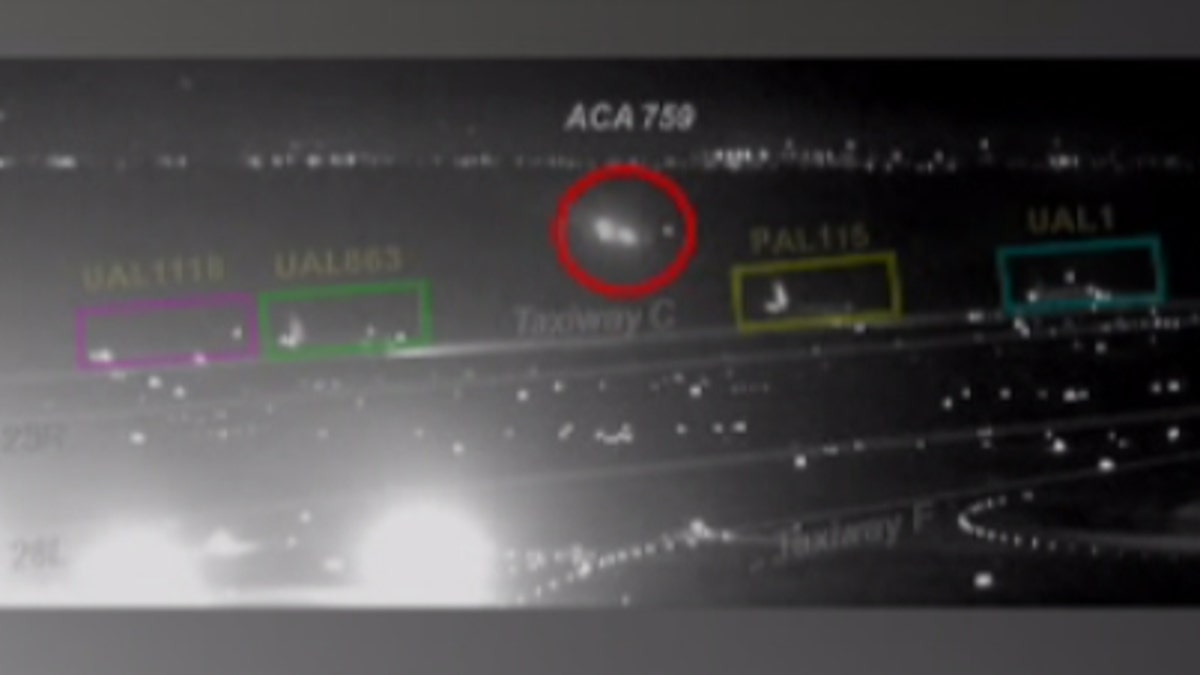
For 12 seconds the rogue jet dropped from radar when it approached the taxiway just before midnight. (NTSB)
The Federal Aviation Administration said it is working on modifications to fix the radar glitch, agency spokesman Ian Gregor said.
It wasn’t inexperience that led to the mistake. Both pilots of the Air Canada plane were veteran aviators with years of experience. The captain had more than 20,000 hours of flying time and the co-pilot had about 10,000 hours.
The pilots told investigators "that they did not recall seeing aircraft on taxiway but that something did not look right to them," the NTSB said.
CANADA AIR FLIGHT COMES WITHIN 100 FEET OF PLANES ON RUNWAY AT SAN FRANCISCO INTERNATIONAL
Investigators could not hear what the Air Canada captain and co-pilot said to each other during the aborted landing because their conversation was recorded over when the plane made other flights, starting with a San Francisco-to-Montreal trip the next morning. Recorders are required to capture only the last two hours of a plane's flying time.
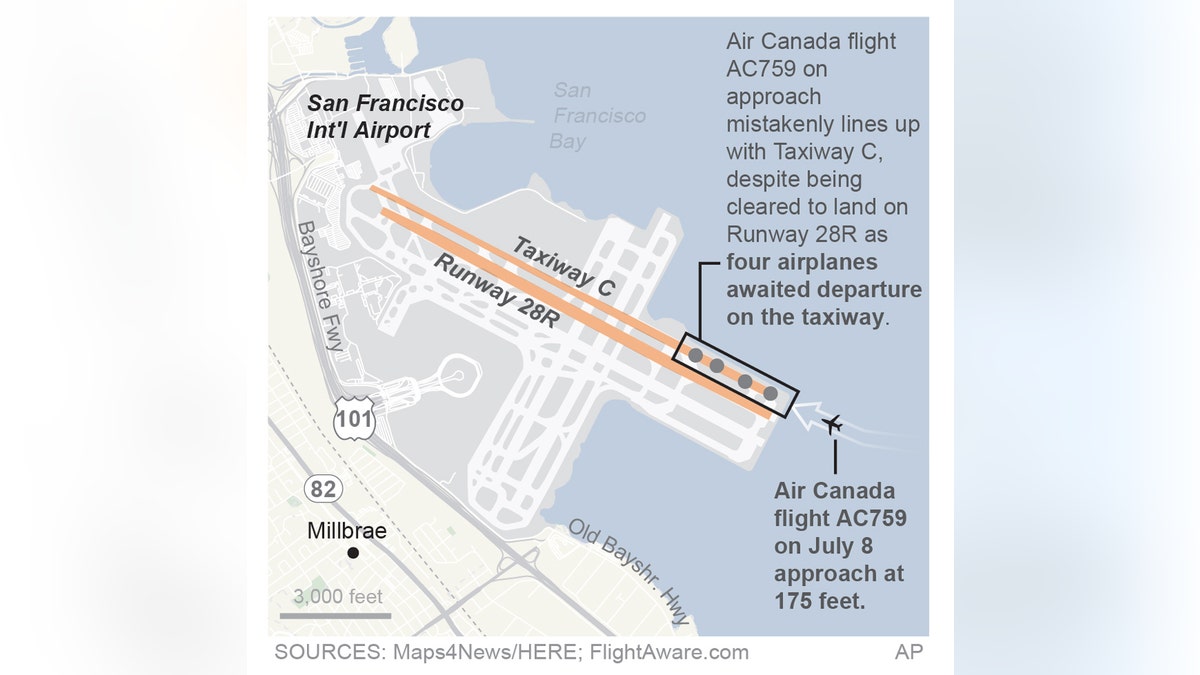
Graphic shows the close call scenario of Air Canada AC759 at San Francisco International Airport on July 8. (AP)
Peter Fitzpatrick, a spokesman for Air Canada, declined to comment, citing the ongoing investigation.
Includes reporting by The Associated Press.



